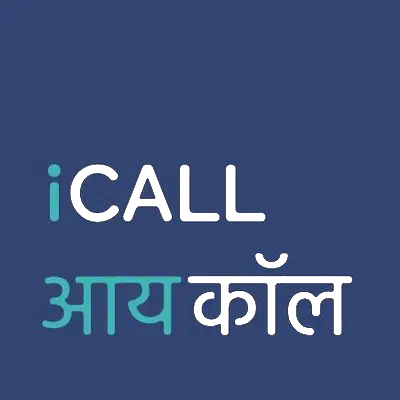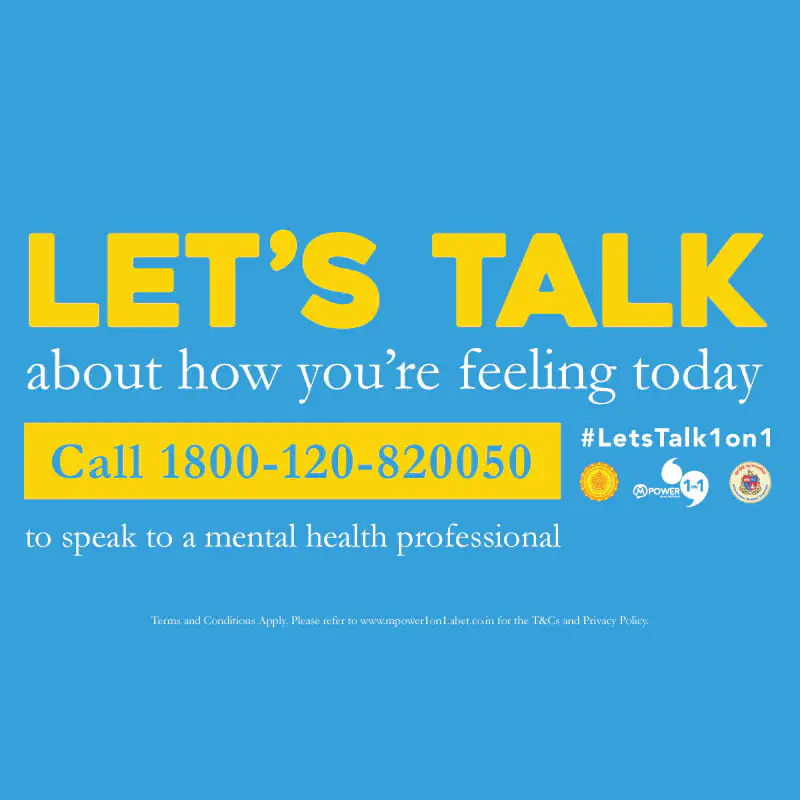The Helplines
While the helplines listed below are free, local charges may apply when you call them up.

One Future Helpline
Summary: Reach out for support and guidance.
Run by: Trained Volunteers.
Timings: Monday, Tuesday, Wednesday, Thursday, Friday, @ 12:00 AM - 8:00 PM
Calls Recorded: Unknown ❓
Number: +918043053588
Website: Visit Website.

Vandrevala Foundation Helpline
Summary: Providing professional and compassionate mental health services to empower individuals.
Run by: Trained Volunteers.
Timings: Sunday, Monday, Tuesday, Wednesday, Thursday, Friday, Saturday @ 00:00 AM - 11:59 PM
Calls Recorded: ⏺️ Yes
Number: +919999666555
Website: Visit Website.

iCall: A Service By TISS
Summary: Professional support for emotional and psychological well-being.
Run by: School of Human Ecology, Tata Institute of Social Sciences
Timings: Monday, Tuesday, Wednesday, Thursday, Friday, Saturday @ 10:00 AM - 8:00 PM
Calls Recorded: Unknown ❓
Number: +919152987821
Email: [email protected]

Mpower 1-on-1 Helpline
Summary: A 24/7 toll-free helpline providing support for a range of mental health concerns.
Run by: Mpower and BMC with Maharashtra Govt.
Timings: Sunday, Monday, Tuesday, Wednesday, Thursday, Friday, Saturday @ 00:00 AM - 11:59 PM
Calls Recorded: ⏺️ Yes
Number: 1800120820050
Website: Visit Website.

Parivarthan
Summary: Empowering individuals through professional counselling services.
Run by: Trained Counsellors.
Timings: Monday, Tuesday, Wednesday, Thursday, Friday, @ 1:30 PM - 10:00 PM
Calls Recorded: Unknown ❓
Number: +917676602602
Email: [email protected], [email protected]
Website: Visit Website.

Mann Talks
Summary: Empowering individuals with professional and empathetic mental health services.
Run by: Trained Counsellors.
Timings: Sunday, Monday, Tuesday, Wednesday, Thursday, Friday, Saturday @ 09:00 AM - 8:00 PM
Calls Recorded: Unknown ❓
Number: +918686139139
Email: [email protected]
Website: Visit Website.
TheMindClan.com does not own or operate the crisis helplines listed above, and make no claims to the accuracy of the information provided. It cannot be held liable for any issues arising from from usage of these independent third party service providers If you are in a crisis and the above helplines are not able to help you, please reach out to a trusted nearby hospital or call trusted emergency services.

